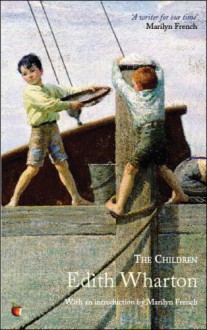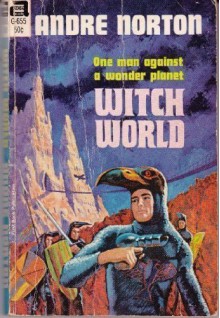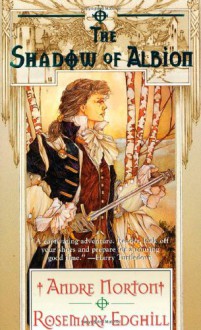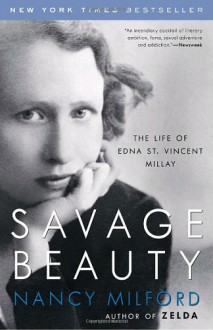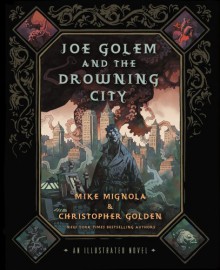
***Note: this review assumes that you've read the book.***
One-sentence summary: A reasonably strong debut, The Sea of Tranquility is fatally wounded by its ending, and is ultimately outclassed by the less-well-known 2014 young-adult novel, Perfectly Good White Boy, by Carrie Mesrobian.
Adult or YA? Although the book was sold as adult, it's YA. I have no idea why the agent/editor/publisher thought differently...or was it all a strategy on the publisher's part to win an Alex Award from the American Library Association? (The Alex is given every year to ten books written for adults with special appeal to teens.) If so, the tactic worked: Tranquility won an Alex, despite the fact that there were better YA novels published in 2012 that didn't win any ALA/YALSA awards, and despite the fact that Ms. Millay actually violated a few important ethical tenets of YA that I think YA editors would have caught. (More on that below.)
The ending. For me, the attempted rape of Nastya by Kevin Leonard marked the deterioration of the story into a slightly melodramatic, cliched ghost of the first, stronger half. What was the purpose of that assault? As with many moments in this novel in the latter half, if you look carefully you can see the author's hand--you can see her using characters as puppets rather than letting them behave and react as real human beings. Kevin's assault was orchestrated so that Nastya could realize in the middle of a bad decision that she wasn't ruined by her near murder at age fifteen, and that although she had suffered the loss of her identity as a daughter and pianist, she wanted to survive, to eventually get well, and to not come totally apart. It's disappointing to have this happen via a rape scene, though, because rapes aren't plot devices. In addition, Nastya hasn't shown destructive behavior at all until this point--other than the contrived no-talking rule, and dressing in a way that elicits unwanted attention from boys. She has spent a good deal of time learning how to thwart aggressive attacks, and teaching her friends how to do it. So abandoning control of her body to tell us that she's self-loathing feels forced here, when all of her behavior has been purposeful until now. But more than that, Kevin's attack is downright brutal in its depiction, but because his assault was not really what was important to Ms. Millay in that scene, she gives Kevin a pass, and has characters essentially brush off the incident later, when it becomes inconvenient to the forward momentum of the story.
Further melodrama: why did Nastya disappear, other than to introduce a last climax in the final act, where everyone who loves her is panicked and despondent?
Unsatisfying (in terms of serious literature) Happily Ever After: After five short weeks of therapy and being with her family, Ms. Millay hastily wraps up Emilia's healing process. Emilia returns to Josh's garage and the two broken but hopeful characters slowly help to mend each other at the end. Which brings me to...
Passionate pursuits, and finding fulfillment when they're lost. I thought this is what the book was going to be about, but nope. Fundamentally, Nastya is rescued by a boy, no matter how hard the author tries to massage the narrative to say that she isn't. (Well, to Ms. Millay's credit, Nastya is also partly rescued by Drew's family, and in the end, her own.) What had broken Emilia was losing her identity and having the thing she loved (playing the piano competitively) ripped away from her. She was on a quest to find a way to matter again to herself, and I wanted that to come from her--to come from discovering that she could channel her passion into another area, and find fulfillment despite her loss. Sure, it's great she discovers that her family is there for her. (Actually, Nastya gets to have two devoted families, despite not saying a word to any of them.) I wanted the ending to be more ambiguous: if Emilia tells us there's a chance that as they get healthier, she and Josh might grow apart, I want to be left with that wonder and that worry. I don't want an epilogue that says, "Gotcha! They lived happily ever after!" A satisfying, realistic ending would have been for the reader to see Emilia working on her own healing, alone. I wanted to see her baking, talking again, living with her family, and getting therapy. Yes, that's exactly what happens for five weeks, but that's not long enough before she's back in Josh's garage. In fact, we learn that--in a moment of unexpected magical realism--she saw Josh's garage when she died, the way Josh's grandfather saw the red brick house and swing of his future bride when his heart briefly stopped after a construction accident. This isn't a joke on Emilia's part, since the reader remembers the odd reaction she had to seeing Josh's garage on her first run (she had seen this place before; she knew she must return to see it again). As retroactively "meet cute" as this is, it severely damages the growth of the main character, to have it preordained that Josh was the love of her life, the person who would save her.
YA ethical violations: As I mentioned, YA authors and editors are careful with issues of sexual violence and violence, and how they're treated. How did this book get a pass from progressive readers on the following issues? 1. Drew wonders aloud why the boy who beat Emilia nearly to death didn't rape her, because she's so beautiful. Does this really not make sense to him? What sort of caveman rock has he been living under? Meanwhile, Josh doesn't disabuse him of the notion that rape is violence, not sex, and is unrelated to how beautiful the victim is. (Josh does get angry at this point, and my reading partner thought Josh was arguing that point, but if you look closely the source of his anger is his misunderstanding that Drew is making an awful, inappropriate joke about how sexy Nastya is). In YA, you can't have a good guy (Drew) talk about rape incorrectly to another good guy (Josh) and not somehow impart the important point that rape has nothing to do with looks or the victim and everything to do with violence and the perpetrator. 2. As I mentioned, Nastya is saved by Josh in the end, even though the author tries to make you think she isn't. 3. The author provides an "excuse" for Aidan's attack on Emilia (he thought she was someone else--his brother's ex-girlfriend, whom he blamed for his brother's suicide, and he had a psychotic break). Why does Ms. Millay do this? By not allowing the attack to be a senseless act, by trying to humanize a boy who beat a girl nearly to death, by adding this information without showing anything about the boy's psychological state over the last three years (do people have psychotic breaks and then go on to win art contests, with no apparent therapy?), Ms. Millay veers too close to squicky territory. Although the boy turns himself in and will be sentenced, we're left with this queer feeling that there is something "forgivable" in what he did. 4. Kevin Leonard tries to rape Nastya and there are no repercussions. Instead, Ms. Millay hastily dispatches him from the plot line by having him attempt to apologize in class, whereupon Josh kicks his chair. That's Kevin's punishment?
Red Herrings and lost threads: I think a lot of the red herrings and lost threads come from the way Ms. Millay uses objects and people as plot devices. When they've served their purpose they disappear. Thus, the gift of the camera and Nastya's brief interest in photography could have led to a new hobby for her, but then the camera disappears and we realize it was just a device to give us one moment of reconciliation with her mom. I also thought the strength Nastya was building up in her hand by sanding Josh's pieces could have led her to the realization that she might someday enjoy playing piano for herself, though not professionally. (And there's even a piano in Josh's house!) But no, we only see that she can now frost cakes without her hand stuttering. Which in turn led me to believe that maybe her talent at baking would allow that to become her passion, replacing the piano. I envisioned her opening a bakery or catering baked goods (as Mrs. Leighton sort of suggested) by the end of the book (Emilia is eighteen and no one in this book has talked about college, after all). But no, baking is just a cute thing she does, and a device to allow her to interact with mothers who might otherwise think she's just a silent, scantily-clad, glaring teenager. Another lost thread: why is Nastya uncomfortable with loud rooms and loud environments? When we finally learn her secret, there's no link there. Also, why did Nastya collect names? Unfortunately it seemed like a convenient way for the author to"tell" us what the names Josh and Nastya mean at the end.
The main character who hides information from the reader. I don't mind when a narrator doesn't tell me something because she doesn't know it herself. I don't mind unraveling the mystery of what happened to her alongside her. But it's sort of an irritating commercial trick to have a knowledgable main character dangle the promise of learning The Big Secret as a way to keep me reading.
The not-talking decision. What is the point of this? Aren't there plenty of children who are survivors of horror who refuse to talk about what they've been through? It's too flimsy to attribute Nastya's vow of silence to the fact that she knows she's a bad liar, and she knew she'd have to tell her family everything, but she wasn't ready. If she's traumatized, wouldn't she never speak (as in Laurie Halse Anderson's Speak)? When Nastya chatted to herself in the shower, to "practice using her voice so she wouldn't lose it," the whole concept broke down for me.
Pretty early on, Ms. Millay had to allow Nastya to talk to Josh and Drew, because otherwise their relationship would go nowhere. The author recognizes the genuine impossibility of a silent person in a social world: human beings cannot relate without communication (Nastya won't even write notes, unless they are simple memos, for instance giving someone an address). But then why is Nastya fawned all over in school? She quickly gathers the most interesting kids as her allies, whereas in real life she would be ignored: an oddity, a nothing. Something about her (please, not her beauty, but I fear so) is strongly compelling, and these very unusual/talented kids make friends with her and protect her. The not-speaking begins to feel like a "hook" when the other characters are not allowed to react realistically and appropriately to it.
Contrived plot devices, giant coincidences. I don't think Ms. Millay intended for this book to be magical realism. If she had, perhaps some of the following items could have been mysteriously or mystically true. But in general the contrivances and coincidences were surrounded by such heavy material ("Everyone I've ever loved has died, so I'll never love again"), I'm inclined to think they're instead a result of her wrangling her plot into position. 1. parental figures are entirely removed: Aunt Margot, who is acting as her guardian, works the night hospital shift; Josh has no family to get in the way of the narrative; 2. the boy who nearly killed her, Aidan, happens to be a finalist in the very same art contest that Nastya's dear friend Clay Whitaker is in; 3. She doesn't tell anyone that she remembers her attacker because "she's not ready," but actually it feels to the reader that the author wants to control the moment she meets him, three years later; 4. The poem in English class is about second chances, right after Nastya and Josh break up (P.S. is the author related to Edna St. Vincent Millay?); 5. Nastya goes jogging late at night and ends up at Josh's house by accident on the first night. (Again, this one event may be magical realism, especially as it ties in with the ending line.)
Why did Nastya have sex with Josh and then leave him? It was completely out of character that she did it to "ruin" herself. Her relationship with him was comfortable and intimate, and she mentioned several times that his kisses were an invitation she wouldn't say no to forever. She wasn't a prude about drinking or language, or anyone else's sexual lives. It felt, again, like a contrivance designed to separate them for the sake of the plot. If she wanted to self-destruct, there were a lot of real ways Ms. Millay could have shown that--through drugs, drinking, promiscuous unprotected sex--but instead she defines the last straw in her "ruination" as having sex with someone she loves? And while we're on the subject of their sexual encounter, can he really tell that her hymen is intact, which is what Ms. Millay implies? (And further, would it still be intact after being kicked repeatedly in the vagina?)
Not killing your darlings. Ms. Millay seems unable to make her characters less than perfect. Every important character in this book is stunningly beautiful, handsome, talented, or all three. She makes Nastya dress like a "slut" (this is the word used by her classmates, and it's hugely problematic to me that it's never addressed) yet Nastya is also the Good Girl, the virgin. Meanwhile Josh sleeps with a girl he doesn't love, but readers are supposed to think it's okay because he's a good guy, and his hook-up partner (Leigh) is not committed to him either. Why is there an implied double standard? Why not allow Nastya sleep around--to truly make her self-destructive? Another way to kill her darlings for the sake of literature would have been an ambiguous ending. I was disappointed the author didn't trust her readers to handle the nuance of a realistic ending--one in which Nastya is healing, not being saved, and the happily-ever-after may or may not happen.
In sum: You should read Perfectly Good White Boy instead. Seriously, it's another contemporary, realistic book with a plot that seems to move slowly, where not much seems to happen except personal growth. Like Tranquility, Perfectly Good White Boy has a long, slow, deeply intimate relationship between a girl and a boy without sex. Unlike Tranquility, the main character is so incredibly real, so raw, you'll follow him anywhere just to hear him talk to you, while you desperately hope he'll learn to feel valuable to himself, and safe and loved by others.


 Log in with Facebook
Log in with Facebook 

